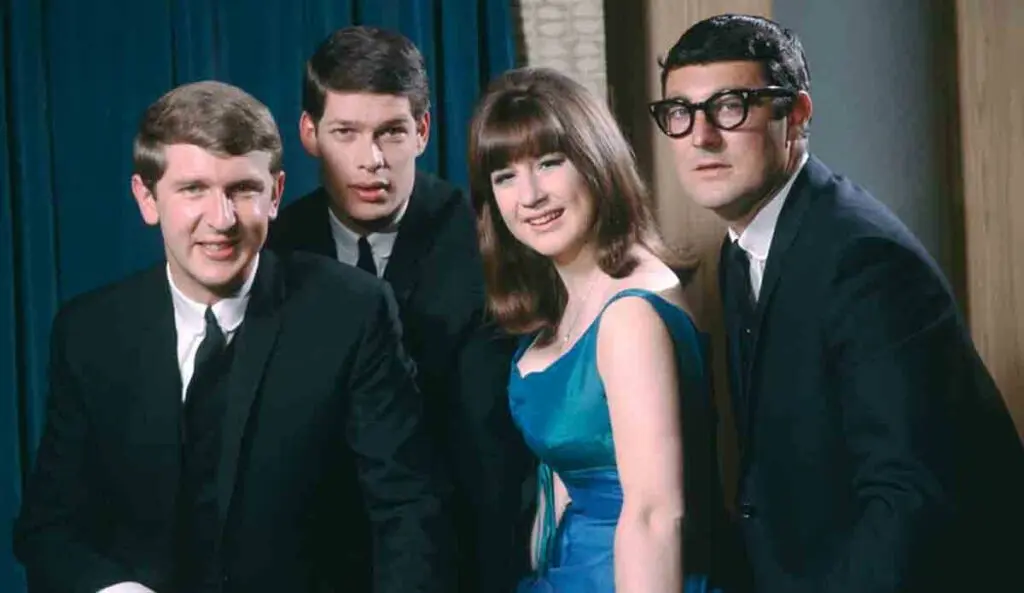About the song
Emerging from the vibrant folk music scene of the 1960s, The Seekers’ “Kumbaya” stands as a timeless spiritual anthem, captivating audiences worldwide with its simple yet profound message of unity, hope, and togetherness. The song’s enduring popularity stems from its ability to transcend cultural and religious boundaries, fostering a sense of shared humanity and collective resilience in the face of adversity.

Background and Inspiration
The song’s origins can be traced back to the Gullah people of coastal South Carolina and Georgia, who developed a rich tradition of spirituals and hymns. The word “Kumbaya” is believed to be a derivation of the Gullah phrase “come by here,” an invitation to join in community and worship. Over time, the song spread throughout the African American community and gained popularity among various Christian denominations.
In the 1960s, the folk music revival movement brought “Kumbaya” to a wider audience. Pete Seeger, a prominent figure in the folk scene, included the song in his repertoire, and it quickly became a staple of folk gatherings and civil rights protests. The Seekers, an Australian vocal group, discovered the song in 1963 and released their rendition as a single in 1964.
Musical Style and Arrangement
“Kumbaya” exudes a gentle folk charm, characterized by its simple melody, harmonious vocal blend, and sparse instrumentation. The melody, based on traditional Gullah spirituals, is easy to sing along to, fostering a sense of communal participation. The arrangement features a prominent acoustic guitar strumming pattern, providing a steady backdrop for the group’s heartfelt vocals.
Lyrical Analysis and Meaning
The lyrics of “Kumbaya” are simple yet profound, conveying a message of unity, hope, and perseverance in the face of challenges. The opening lines, “Kumbaya, my Lord, Kumbaya,” set the stage for a collective invocation, inviting listeners to join in a shared experience of faith and resilience. The verses that follow speak of the power of community, emphasizing the importance of coming together to support one another through life’s trials.
The song’s chorus, with its repetitive refrain of “Kumbaya,” serves as a mantra of unity and hope. The lyrics emphasize that even in the darkest of times, there is always a glimmer of light, a promise of better days ahead. The song’s message of togetherness and resilience has resonated with people across cultures and generations, offering solace and inspiration in times of need.
Legacy and Cultural Impact
“Kumbaya” has become a beloved spiritual anthem, transcending cultural and religious boundaries to unite people worldwide. Its enduring popularity is evident in its countless covers by artists across various genres, including Joan Baez, Harry Belafonte, and Mahalia Jackson. The song has also been featured in numerous films, television shows, and commercials, further solidifying its place in popular culture.
In conclusion, The Seekers’ “Kumbaya” stands as a timeless testament to the power of music to unite, inspire, and offer hope. Its simple yet profound message of unity, resilience, and the enduring spirit of humanity has resonated with audiences worldwide for generations, making it an enduring emblem of shared human experience.
Video
Lyrics
🎵 Let’s sing along with the lyrics! 🎤
Kumbaya, my Lord, kumbaya;
Kumbaya, my Lord, kumbaya;
Kumbaya, my Lord, kumbaya;
Oh, Lord, kumbayaSomeone’s cryin’, Lord, kumbaya;
Someone’s cryin’, Lord, kumbaya;
Someone’s cryin’, Lord, kumbaya;
Oh, Lord, kumbayaSomeone’s singin’, Lord, kumbaya;
Someone’s singin’, Lord, kumbaya;
Someone’s singin’, Lord, kumbaya;
Oh, Lord, kumbayaKumbaya, my Lord, kumbaya;
Kumbaya, my Lord, kumbaya;
Kumbaya, my Lord, kumbaya;
Oh, Lord, kumbaya
Kumbaya